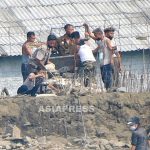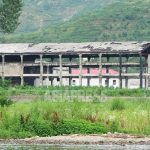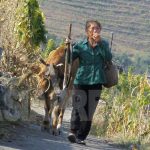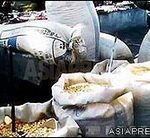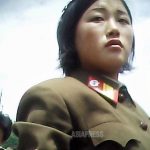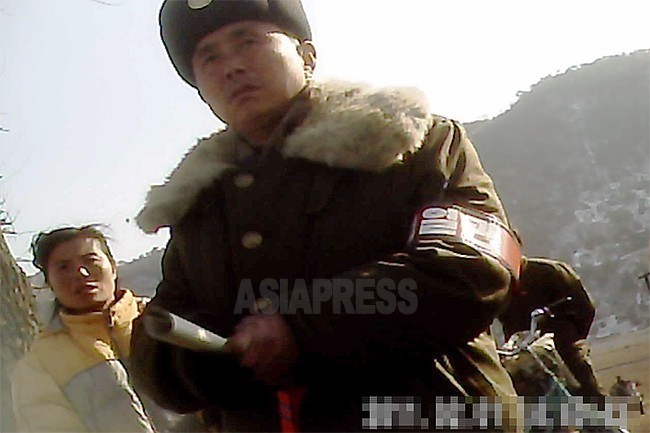
◆ Starting in April, famine conditions emerge in provincial areas
Amid an increase in poverty-stricken people in urban areas and starvation deaths among North Korea’s vulnerable classes starting in April, ASIAPRESS has found that even police officers in the country faced a temporary halt in rations. A reporting partner in the northern region of the country gave the following report in late July. (KANG Ji-won / ISHIMARU Jiro)
Each district (dong) and sizeable business in North Korea have their own “safety officer” and “security officer” (affiliated with the Ministry of State Security). These officials watch over ideological trends and behavior among ordinary people and laborers in their assigned areas. The reporting partner recently heard from local police officers in his area of residence about their treatment by the government these days.
“In May, police officials had their food rations delayed. They were forced to buy food on credit. It was only until early July that they received one month’s worth of food, which included 17 kilograms of white rice for each official, along with an allotment for their families.”
Currently, police officials, security officials and other members of North Korea’s security services are receiving normal levels of rations of white rice for both themselves and their families.
That being said, the officials suffer from a lack of cash income, and while they’re not starving, they are not living well, either. As a result, many law enforcement officers demand money and valuables from trade officials, who are generally in relatively more comfortable financial positions.
◆ Police officers transport rice rations under the cover of night
Starting in April, state-run factories and other businesses in North Korea’s provincial cities were forced to delay what little food rations had been provided to their employees. After the start of the COVID-19 pandemic in January 2020, many residents of urban areas saw a dramatic drop in the income they earned from market activities or from odd jobs due to intense restrictions placed on them by the authorities. This led to famine conditions in these areas.
Reporting partners told ASIAPRESS that “given that ordinary people weren’t able to get proper rations, police and security officers would use bicycles at night to pick up food, which was only provided to those working in law enforcement and security-related positions.”
In short, these officials used the cover of night to move the food back to their homes out of fear of what ordinary people would think.
ASIAPRESS was unable to confirm the state of rationing for police officers in other cities in North Korea, including Pyongyang.
※ASIAPRESS communicates with its reporting partners through Chinese cell phones smuggled into North Korea.
- <Inside N. Korea> Daycares and preschools stop providing meals due to financial troubles…Parents facing demands for rice and money protest by turning their backs on the schools, sending their kids to neighbors instead
- <Investigation>100 soldiers surround farming community of 500 farmer to prevent stealing of crops…Military-Farmer relations improved
- <Inside N.Korea> Spring wheat harvest is finished and delivered to the army・・・Farmers rebel without their share
- <Photo Report> A visit to a North Korea-China trade hub…Freight trucks line up to head into North Korea, but drivers not allowed to leave vehicles
- Interview About Conditions Inside North Korea Pt.1 -Is it true that people have died of starvation?-
